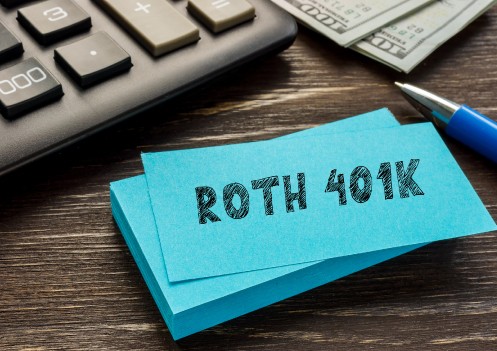Don’t Skip This Great Retirement Benefit
October 23, 2025
If you have a retirement plan through work, chances are your employer offers a great option. Yet, for reasons I can’t understand, you aren’t signing up for this great option.
I am talking about being able to save for retirement with a Roth 401(k).
According to Vanguard, more than 85% of 401(k) plans offer participants the option to save in a Roth 401(k). That is fantastic. But here’s the part that has me pulling my hair out: Vanguard also reported that fewer than 1 in 5 participants who had this option chose to save in a Roth 401(k).
That is nuts. Given that right now you may be in the midst of “open enrollment” season, when your employer asks you to review and update all their benefit choices for the coming year, I hope you will consider making 2026 the year you start to save in a Roth 401(k), if it’s offered. I am not talking about moving all the savings you already have in your 401(k). All that you should change is where your new 2026 contributions (your payroll deductions) go.
If you have spent years contributing to a Traditional 401(k), that’s great. And to be clear, that was typically the only option you had until recently. But now most employers give you an option of saving in a Traditional or Roth 401(k).
The big difference is when you pay tax. With a traditional 401(k), the amount you contribute each year reduces your taxable income. For example, if you earn $85,000 and contribute $10,000 to a traditional 401(k), your taxable income from those earnings is reported as $75,000. But there’s a tax bill later on: 100% of withdrawals from a traditional 401(k) are taxed as ordinary income. And you must take annual withdrawals at some point, known as required minimum distributions (RMDs).
- If you were born 1951–1959, your RMD age is 73.
- If you were born 1960 or later, your RMD age is 75.
A Roth 401(k) has a different tax setup. You get no upfront tax break on the money you contribute to the account. But once you are retired, 100% of your withdrawals will be tax-free. And there is no RMD with a Roth 401(k): you don’t have to make withdrawals at any point if you don’t need the money.
I have nothing against Traditional 401(k)s, but for those of you who have spent years saving in a Traditional 401(k), it would be so smart to now focus on building up savings in a Roth 401(k). Having money you will not owe any tax on in retirement is going to be a great advantage. It not only will keep your taxable income lower, but it can also help keep your Medicare Part B premium lower (as it is tied to your income) and may also play into how much tax you will owe on your Social Security benefits.
Adding Roth savings to your retirement plan—either through a Roth 401(k) or a Roth IRA—will give you important tax flexibility once you retire. If it’s an option, I sure hope you will consider making the switch for 2026 and beyond.






